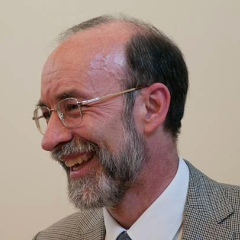You are not currently logged in. Please create an account or log in to view the full course.
What is the Infinite?
- About
- Transcript
- Cite
The Infinite
In this course Adrian Moore (University of Oxford) explores the infinite in metaphysics and theology, through a historical approach. In the first module we think about what we mean by the infinite. After that, we explore the Ancient Greeks and their hostility towards the infinite. In the third module we look at medieval thinkers and a positive change in metaphysical and theological conceptions of the infinite, before moving onto a module on early modern thinkers and the question of what grasp we have on the infinite. In the fifth module, we delve more deeply into the question: what should we make of the infinite? Finally, in the sixth module, we turn our attention to the finite, and the variation in attitudes towards finitude.
What is the Infinite?
In this module, we think about what we mean when we talk about the infinite, focusing in particular on (i) the two different kinds of infinity – the mathematical or scientific conception, and the metaphysical one; (ii) the relation between these two conceptions of the infinite; and (iii) the concepts of the infinite that are not included in this course.
Cite this Lecture
APA style
Moore, A. (2022, February 07). The Infinite - What is the Infinite? [Video]. MASSOLIT. https://massolit.io/courses/the-infinite
MLA style
Moore, A. "The Infinite – What is the Infinite?." MASSOLIT, uploaded by MASSOLIT, 07 Feb 2022, https://massolit.io/courses/the-infinite





